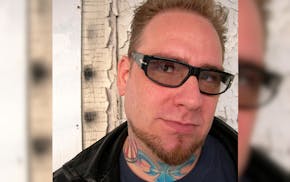David Durk, 77, a New York police detective who with officer Frank Serpico shattered the infamous blue wall of silence to expose widespread corruption in the city's Police Department in the 1960s and '70s, died on Tuesday at his home in Putnam County, N.Y. An Amherst College graduate who studied law at Columbia University, Durk joined the Police Department in 1963. He imagined a life of public service, as he put it rosily years later, to help "an old lady walk the streets safely." But what he found was a culture of corruption: of officers and superiors taking payoffs from gamblers, drug dealers, merchants and mobsters for protection and information, like the names of informers they wanted to kill; of officers stealing and dealing drugs, riding shotgun for pushers and intimidating witnesses. And behind the corruption, he discovered, was a litany of unwritten rules amounting to a pervasive acceptance of the wrongdoing, even among those not on the take -- a code of silence, called the blue wall.
Durk refused to join in and became a pariah. While he was promoted to detective sergeant, he was shuttled among assignments, often just to get rid of him. In 1966, while attending classes for new plainclothes investigators, he met Serpico. He too had refused to take payoffs, and had been shunned -- and threatened -- by fellow officers.
Over the next few years they made their case to high-ranking police and City Hall officials but were rebuffed. Frustrated, they went to the New York Times. In a series of articles based on a six-month inquiry, David Burnham reported in 1970 that drug dealers, gamblers and merchants were making "illicit payments of millions of dollars a year to the policemen of New York."
NEW YORK TIMES

Whitey Herzog, who managed Cardinals vs. Twins in 1987 World Series, dies

Official who helped MSHSL on pioneering ventures dies at 89

Former 'KQRS Morning Show' prankster Lee Siegfried, aka Crazy Cabbie, dies at 55

Richard Serra, who recast sculpture on a massive scale, dies at 85
